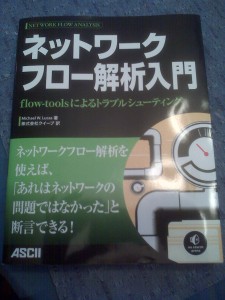Readers who don’t care about my non-technical writing should skip this post.
My friends include authors who are traditionally published, and some who are self-published. Both groups make excellent cases for their choices, and I’m not going to argue against anyone else’s decisions. Whatever works for you, live and let live, and so on.
But both sets make excellent arguments for what I should do with my career. Both sets tell me my non-technical work is good enough to make it. The traditional authors tell me to keep knocking at the doors of the Big Six publishers, and eventually I will get in. The self-publishers tell me that I have more “platform” than many traditionally published novelists, and I should leverage that to bootstrap my non-technical writing career.
It’s an emotional topic. People are very vested in their opinions. I can argue either side, and my opinion tends to vary depending on whoever I’ve spoken to most recently. The way to answer questions is with an experiment. Experiments start with a falsifiable statement. Here’s mine. “I have sufficient platform to profitably self-publish fiction on ereader platforms.”
Now, some conditions. What, exactly, is “profitable”? Here are some rough numbers that would probably make an accountant cry, but they’re adequate for this experiment.
Big Name authors sell short stories for thousands of dollars. Medium Name authors sell short stories for about $500. No-name authors sell short stories for prices from $10 to free. My first sale was for $100, but all others were for $10. I’m a no-name. So, let’s classify my writing labor as a $10 expense.
Ebooks need a cover. My graphic design skills are roughly equivalent to a badger’s. I can get an adequate cover for $25, largely due to the curiosity of my artist friend Brad McDevitt about the results.
Software to transform a document into an eBook is free. I started with Mobipocket Creator to transform a PDF into Amazon’s Kindle format, and then used Calibre to transform it into the Barnes & Noble ereader format. To reach the Apple audience, as well as a whole bunch of smaller retailers, I need to use Smashwords’ .doc file upload. I’ve experimented with each of these, and I believe that once I have a hang of them I’ll be able to upload to all three sites in about an hour. How much is my authorial time worth? Judging by the $10 price of a completed short story: not much. How about the time of a skilled software operator? That’s a little better. I’ll call it $20/hour.
I could add in a share of the computer, office space, and so on, but that’s all stuff I need for my tech writing business. I’m not going to count that. Similarly, I own a Kindle, for my own purposes, but I’ll use it to test my early ebook builds. I won’t count that, either. Should this be successful, all these would become legitimate expenses.
The expenses to publish a short story are, roughly speaking, $55.
The going price for ereader short stories is $0.99. Amazon gives authors a 35% royalty on $0.99 items, or $0.35 per sale. I must sell 157 copies of a story to break even.
One big question is, “is the work good enough to sell?” I’ll control for that by starting with stories I have previously sold, but whose rights have reverted back to me. If I have success with them, I’ll try a couple pieces that have never sold.
Time is another factor — if I sell 157 copies over 10 years, is that a win? No. How about one year? Maybe.
The first story is up on Amazon. I still need to do B&N and Smashwords.
A month or so after I have the first one up on all three sites, I’ll report my initial results.

